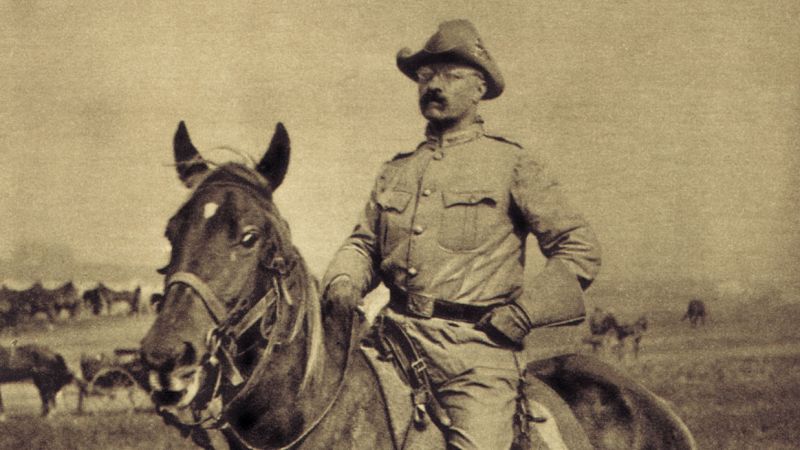Theodore Roosevelt is known for his image of rugged manliness, which he carefully crafted throughout his life. However, a new biography by Edward O’Keefe argues that the women in Roosevelt’s life played a significant role in shaping him as a person as well. The book, titled “The Loves of Theodore Roosevelt: The Women Who Created a President,” sheds light on the stories of his two sisters, two wives, and his mother, who supported him in various ways but have been largely forgotten by history.
Despite his reputation as a strong and masculine figure, Roosevelt’s life was marked by instances of emotional turmoil and absence. O’Keefe explores this dichotomy by highlighting Roosevelt’s tendency to leave his loved ones in difficult times. His wives and family understood the need to be his emotional support system, as he often struggled to navigate challenging situations. The book reveals a more sensitive and emotional side to Roosevelt than is typically portrayed in history, one that was shaped by the influence of the women in his life.
Roosevelt’s upbringing in a wealthy family positioned him in a privileged social class, yet he managed to transcend his elitist background to become a populist leader. Despite his wealth, he felt a sense of responsibility towards society and believed in giving back to those less fortunate. O’Keefe points out that Roosevelt’s parents played a crucial role in instilling values of unity and responsibility in him, which shaped his political ideology and actions throughout his life.
Tragedy and loss played a significant role in shaping Roosevelt’s character, as evidenced by the untimely deaths of his first wife in childbirth and his mother on the same day. Similar to President Joe Biden’s own experiences with loss, these events became crucible moments in Roosevelt’s life that influenced his future decisions and actions. O’Keefe draws parallels between the two leaders and highlights how personal tragedy can sometimes lead individuals to a life of purpose and dedication to public service.
In the current political landscape, there is a resurgence of discussions around masculinity and gender roles, particularly on the American political right. O’Keefe notes that Roosevelt’s era was also marked by debates on masculinity and societal expectations. The book explores how Roosevelt navigated these themes and challenges traditional notions of manhood by showcasing his emotional depth and reliance on the women in his life for support. O’Keefe suggests that history has a way of repeating itself, as modern-day leaders grapple with similar issues around gender roles and identity.
One intriguing aspect of Roosevelt’s personality highlighted in the biography is his complex relationship with animals. While known for his love of pets and wildlife, there are instances where he displayed contradictory behavior, such as shooting a neighbor’s unruly dog in a fit of anger. O’Keefe draws comparisons to contemporary figures, such as South Dakota Gov. Kristi Noem, who have faced scrutiny for similar actions involving animals. Despite these inconsistencies, Roosevelt’s genuine affection for animals and the natural world remained a core aspect of his character, symbolizing both his strength and vulnerability as a leader.













